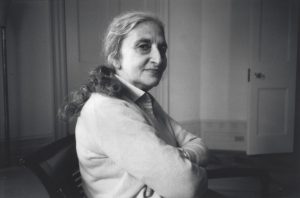
Ruth Prawer Jhabvala, 1927-2013, was an award-winning novelist and screenwriter who spent her life living in 3 continents. She was married to the renowned architect and artist Cyrus Jhabvala cshjhabvala.com and had 3 daughters. She is survived by her 3 daughters and her close friend and screenplay collaborator, James Ivory merchantivory.com
EARLY LIFE IN GERMANY
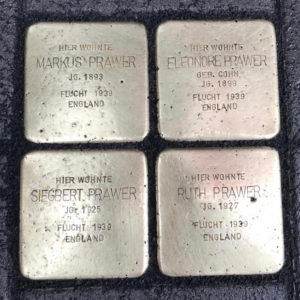 Ruth was born to Jewish parents, Markus and Eleanora Prawer (nee Cohn) in Cologne, Germany.
Ruth was born to Jewish parents, Markus and Eleanora Prawer (nee Cohn) in Cologne, Germany.
Markus was Polish and Eleanora was German. Later Ruth wrote, “My first memories then - that is, between 1927 and 1933 - were of a well-integrated, solid, assimilated, German-Jewish family.” Ruth and her older brother, Siegbert. en.wikipedia.org/wiki/Siegbert_Salomon_Prawer, along with their parents saw the rise of the Nazis, first in disbelief and then in horror. They fled Germany for England in 1939, after the terrible events of Kristallnacht, when they saw the Glockengasse Synagogue (where Ruth’s grandfather had been the Oberkantor) burned to the ground by the Nazis.
stolpersteine.wdr.de/web/en/stolperstein/17407
LIFE IN ENGLAND
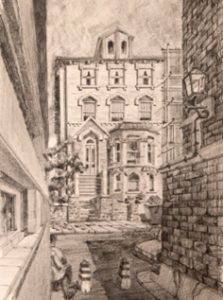 Ruth quickly adapted to her new country. Speaking only German when she arrived, she soon learned English, although she still spoke German at home. Britain was at war, and they lived with the terror of the air raids and the very real possibility that the Nazis would invade Britain as well. She remained grateful all her life to the British for allowing her to emigrate with her family, becoming a naturalized citizen in 1948. There was also another debt she felt she owed to the country: “England opened out the world of literature for me; what other writers have experienced and set down.” At the end of her life, she donated all her literary papers, “in gratitude” to the British Library.
Ruth quickly adapted to her new country. Speaking only German when she arrived, she soon learned English, although she still spoke German at home. Britain was at war, and they lived with the terror of the air raids and the very real possibility that the Nazis would invade Britain as well. She remained grateful all her life to the British for allowing her to emigrate with her family, becoming a naturalized citizen in 1948. There was also another debt she felt she owed to the country: “England opened out the world of literature for me; what other writers have experienced and set down.” At the end of her life, she donated all her literary papers, “in gratitude” to the British Library.
Britain in turn recognized her achievements, awarding her the Commander of The British Empire (CBE), as well as other awards including the Booker Prize (1975), The Neil Gunn Award (1979), and the BAFTA Fellowship Award in 2002.
INDIA WITH CYRUS
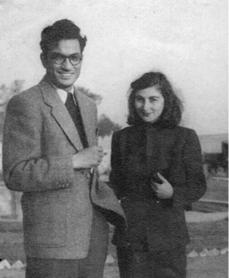 After receiving a master’s degree in English from Queen Mary College, London, she married Cyrus Jhabvala, an Indian Zoroastrian, in 1951 and moved to Delhi, India, the place she called home for the next 24 years.
After receiving a master’s degree in English from Queen Mary College, London, she married Cyrus Jhabvala, an Indian Zoroastrian, in 1951 and moved to Delhi, India, the place she called home for the next 24 years.
She took with her what she learned in England, calling it her equipment, her “baggage for the journey I didn't know I had to make: the journey to India.” Unlike the bleakness of wartime Europe, India was so different:
“The smells and sights and sounds of India - the mango and jasmine on hot nights - the rich spiced food - the vast sky - the sight of dawn and dusk - the birds flying about - the ruins - the music – I've tried to write about it; I've spent years writing about it…It was life as one read about it in the Bible: whole, I thought; pure, I thought.”
MOVE TO NEW YORK
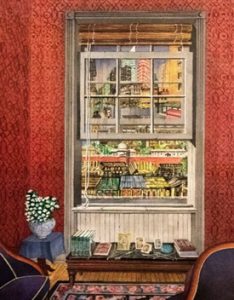 For many years, Ruth was happy in India with her family, writing and developing her career as a novelist and screenwriter. However, in 1976, having raised her family in Delhi, Ruth decided to move to New York, a place she felt was her next home, along with so many other Jewish refugees who had moved there. She did not see it as a disillusionment with India, rather, she saw it as a process of becoming herself again-- a European. She had first seen New York in 1966, staying with Ismail Merchant and James Ivory, with whom she had started collaborating as a screenwriter. She immediately felt at home there, finding in it the old Europe that had collapsed in her early years, complete with the tastes of her childhood found at the local delicatessen. She moved there in 1976, although she kept her ties with both England and India. Her husband, Cyrus, joined her in New York during the 1980s and they both lived there most of the year, only spending a few winter months in Delhi, until Ruth passed away in 2013.
For many years, Ruth was happy in India with her family, writing and developing her career as a novelist and screenwriter. However, in 1976, having raised her family in Delhi, Ruth decided to move to New York, a place she felt was her next home, along with so many other Jewish refugees who had moved there. She did not see it as a disillusionment with India, rather, she saw it as a process of becoming herself again-- a European. She had first seen New York in 1966, staying with Ismail Merchant and James Ivory, with whom she had started collaborating as a screenwriter. She immediately felt at home there, finding in it the old Europe that had collapsed in her early years, complete with the tastes of her childhood found at the local delicatessen. She moved there in 1976, although she kept her ties with both England and India. Her husband, Cyrus, joined her in New York during the 1980s and they both lived there most of the year, only spending a few winter months in Delhi, until Ruth passed away in 2013.
DISINHERITANCE
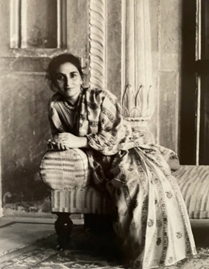
Ruth had strong ties in all three continents, but she always felt that she never quite belonged anywhere. With her German childhood taken away from her, she felt she had lost the experience of childhood and was forever disinherited. As she told an audience in a speech accepting her Neil Gunn Literature Fellowship in 1979 :
“What I would like to talk to you about is my own disinheritance, my own lack of tradition, landscape, memory (either childhood or ancestral). Yes, as I shall explain in a moment, I feel dişinherited even of my own childhood memories, so that I stand before you as a writer without any ground of being out of which to write: really blown about from country to country, culture to culture till I feel - till I am - nothing. I'm not complaining - this is not a complaint, just a statement of fact. As it happens, I like it that way. It's made me into a cuckoo forever insinuating myself into others' nests. Or a chameleon hiding myself (if there were anything to hide) in false or borrowed clothes.”
RUTH
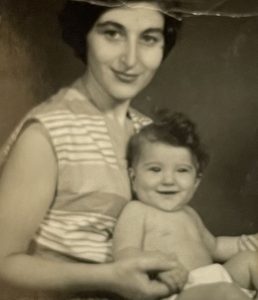 Although Ruth was a prolific writer who won many awards, she was a very private person, a person who valued her family above all. She was a doting mother and grandmother, remaining close to her daughters and their families all her life. She had a strong bond with her husband, and the dialogue between them, along with his keen and funny observations, greatly influenced her writings. Ruth was also a loyal person who maintained her close friendships all her life, through her journeys in the three continents. Her warmth and sense of humor were her defining attributes, and these, along with her works, have kept her memory alive among all who knew her.
Although Ruth was a prolific writer who won many awards, she was a very private person, a person who valued her family above all. She was a doting mother and grandmother, remaining close to her daughters and their families all her life. She had a strong bond with her husband, and the dialogue between them, along with his keen and funny observations, greatly influenced her writings. Ruth was also a loyal person who maintained her close friendships all her life, through her journeys in the three continents. Her warmth and sense of humor were her defining attributes, and these, along with her works, have kept her memory alive among all who knew her.